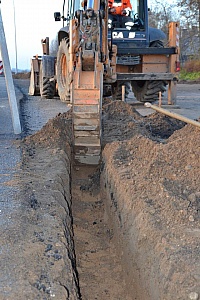As many Texas landowners are aware, oil and gas pipelines are being constructed at an almost frantic pace these days. The first time a landowner is aware that they may be asked to sign a pipeline easement is a call from a land man or right-of-way agent requesting permission to conduct a survey on their property.
Many landowners simply give verbal permission or sign the one paragraph form offered to them by the land man or agent. That can be a mistake. If you’re interested in protecting your property, you should consider using an appropriate survey permit to govern the pipeline company’s surveying activities on your property. That is even more true for geophysical or seismic permits.
A pipeline permit should address at least the following issues:
 Texas Oil and Gas Attorney Blog
Texas Oil and Gas Attorney Blog


